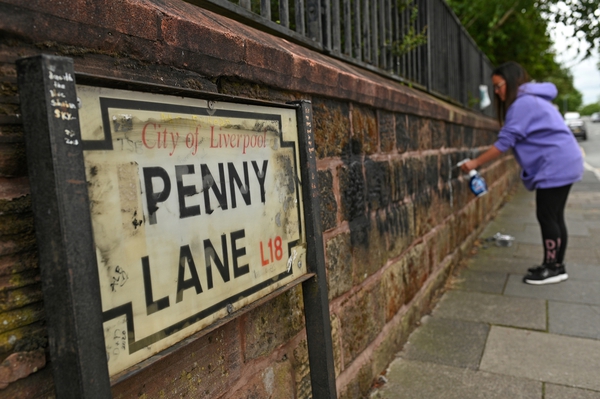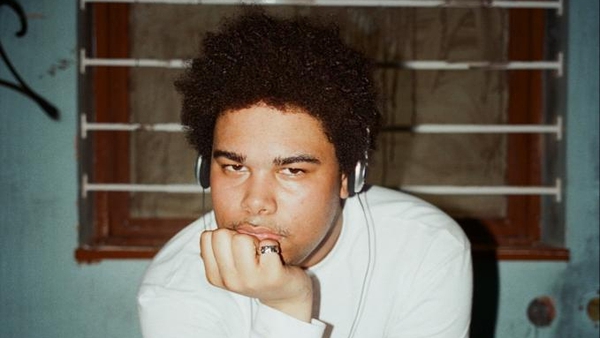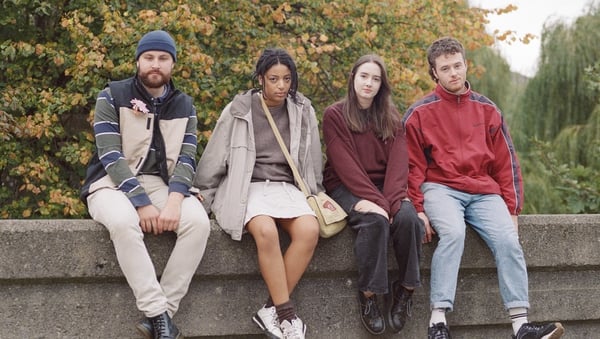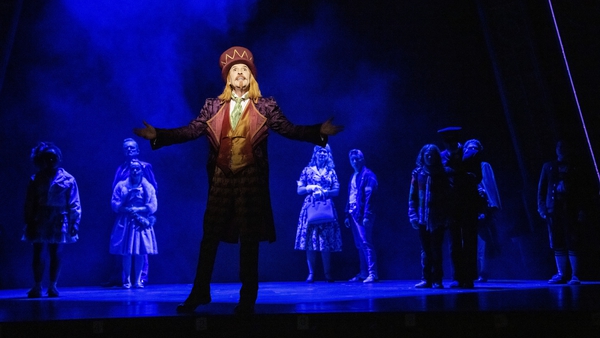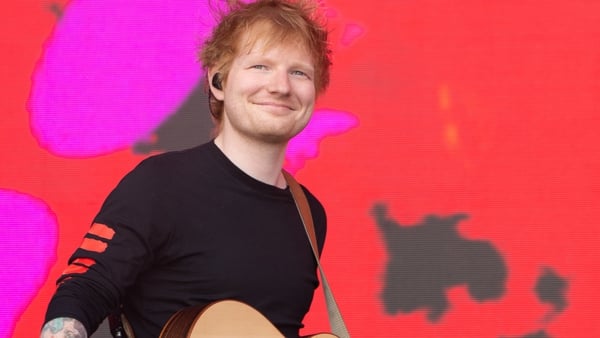The In Bruges dream team of Martin McDonagh, Brendan Gleeson and Colin Farrell are back in a pitch-black tale about the end of a friendship on a remote island off the west coast of Ireland
Returning to the familiar territory of a wild and rocky outpost on the west coast of Ireland, Martin McDonagh's latest film tells a story so simple and yet so terrible that you may spend days wondering what you have just seen after the final credits roll.
McDonagh's work has always been possessed of a wryness and a certain, very Irish manic glee that mixes the surreal with sudden flashes of violence and bleary myth. In Banshees, he marshals them all for a bleakly funny, sorrowful tale about the end of a friendship between two old pals.
We need your consent to load this comcast-player contentWe use comcast-player to manage extra content that can set cookies on your device and collect data about your activity. Please review their details and accept them to load the content.Manage Preferences
Watch our interview with Brendan Gleeson and Colin Farrell
The playwright of The Cripple of Inishmaan and The Lieutenant of Inishmore and director of the much-loved sleeper hit In Bruges, sets his snare within the first six minutes of his film. And what a snare it is.
There is Brendan Gleeson as Colm, slumped in a chair in his cottage on the edge of the world (well, the fictional island of Inisherin in west Ireland in 1923). He looks like he’s just spent a very dark night of the soul in rumination about . . . well, life and the whole damn thing. Suddenly, at the window, Colin Farrell appears as the puppyish Pádraic. He is here to meet Colm, his best friend in all the world, so they can both wander down to the local pub and perform their daily and noble ritual of shite talk over bottles of Guinness.
We need your consent to load this YouTube contentWe use YouTube to manage extra content that can set cookies on your device and collect data about your activity. Please review their details and accept them to load the content.Manage Preferences
However, Colm’s not thirsty or he has come to a fateful decision. He bluntly tells a bewildered Pádraic, "I don’t like you no more". "You do like me", replies Pádraic, half smiling and then his voice trails off . . . Colm wants to be left alone to play the fiddle and think about Mozart. As he says, "I’ve changed. I just don’t have a place for dullness in me life anymore."

It’s sets in train a story of mutual discord that sees both men go to grotesque lengths to prove their point. Pádraic insists that the friendship must continue but Colm’s determination to terminate it all leads him to make a terrible blood oath ultimation. Like Lee Marvin and Toshirō Mifune in Hell in The Pacific in reverse, things go very bad, very quicky.
We need your consent to load this comcast-player contentWe use comcast-player to manage extra content that can set cookies on your device and collect data about your activity. Please review their details and accept them to load the content.Manage Preferences
Watch our interview with director Martin McDonagh
Keen musician Colm’s cottage is a bohemian lair, African masks dangle from the ceiling and a gleaming gramophone takes pride of place. The cosmically dull but nice Pádraic looks after his small herd of cattle and shares a more conventional house with his unmarried, bookworm sister Siobhan (Kerry Condon), where he dotes on his animals (and this is the best movie starring a donkey since Shrek). How, you may ask yourself, were these guys even friends in the first place?
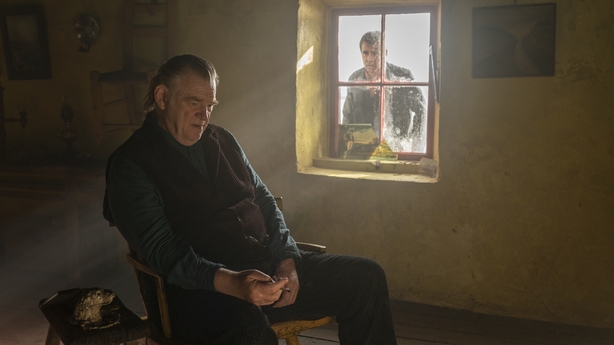
All the while, shells thud and machine guns rattle on the nearby mainland as the Civil War rumbles ominously on like a rumour, playing out a creaky allegory to Padraic and Colm’s own battle. As the spineless and abusive local guard Peadar Kearney (Gary Lydon) blithely remarks as he looks forward to a paid trip to supervise an execution, "The Free State lads are executing a couple of the IRA lads . . . or is it the other way around?"
Farrell's performance as Pádraic, a nice harmless man brought low is compelling. You can see his stupefied face turn to consternation and finally fury in lingering close-ups. If The Lieutenant of Inishmore had Mad Pádraic, Banshees gives us Sad Pádraic.
Of course, the voice of reason in all this is the no-nonsense and highly intelligent Siobhán. Brilliantly played by Tipperary actor Condon (who was so great in Breaking Bad and Better Call Saul), the stultifying island and its befuddled menfolk are driving her to despair. "Sure, he's always been dull!" she thunders in exasperation to Colm when he tells her why he is no longer friends with her brother.
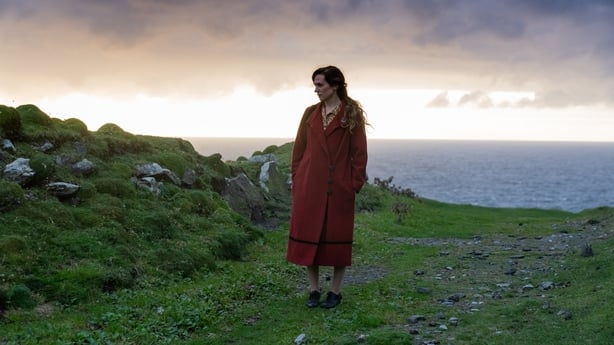
McDonagh has been accused of having shamrock-tinted glasses but you could see Banshees as revenge for Wild Mountain Thyme and his movie is populated by a supporting cast of distorted Irish archetypes. Just in time for Halloween, the black robed crone Mrs McCormick (Sheila Flitton) appears fitfully as a stark outcrop, like one of Macbeth’s witches or, well, a banshee. When she spooks poor Pádraic one too many times, he shouts at her, "Ya feckin’ nutbag."
The bitter priest (David Pearse) ejects Colm from the confession box with some very unchristian language. There’s also the weapon/gossip of a shopkeeper, and the chauvinistic and cruel Garda who gives Pádraic a battering on the quayside one day, leaving him in tears. Along with flawless turns from Gleeson, Farrell and Condon, Barry Keoghan as troubled young islander Dominic plays subtly with any notion that he is the village idiot and offers glimmers of philosophical insight. We also see another duo reunited in the form of D’Unbelievables Pat Shortt and Jon Kenny, the former playing happy-go-lucky barman Jonjo and the latter a half-awake barfly.
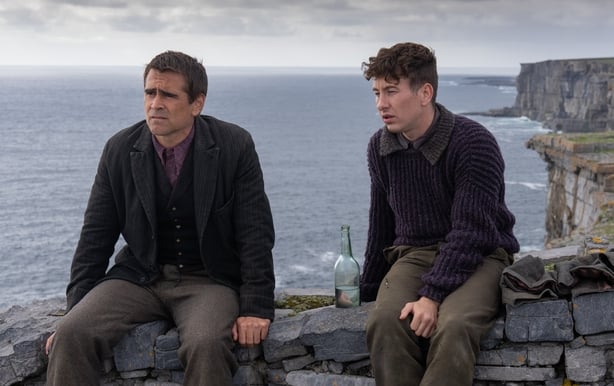
Shot over two months on Inis Mór and Oileán Acla, spectacular vistas dwarf the players and melting sunsets and seasonal changes mark the passage of time in this war of attrition. Carter Burwell darkly atmospheric soundtrack swirls like mist and Ben Davis magnificent cinematography picks out vivid colours like a John Hinde postcard. McDonagh also doffs his tweed cap to Ryan’s Daughter with sweeping beach scenes and the urgent whispering of the townsfolk. There’s more than a little to the westerns of John Ford too. Pádraic and Colm are like circling gunslingers and there are shots through doors and windows aplenty.
Entrenchment leads to the inevitable freefall of savagery. Is it a morality tale? A parable about men’s inability to communicate? A twisted comedy? Any way you slice it, Banshees is funny, powerful, grotesque and indescribably sad. If you like the black stuff, be warned - this is a brewery of sorrow.
Alan Corr @CorrAlan2
The Banshees of Inisherin is in cinemas this Friday, 21 October


![Luther Ford as Prince Harry and Ed McVey as Prince William in an upcoming episode of The Crown [Photo: Netflix / Justin Downing] Luther Ford as Prince Harry and Ed McVey as Prince William in an upcoming episode of The Crown [Photo: Netflix / Justin Downing]](https://img.rasset.ie/001f3510-600.jpg)
